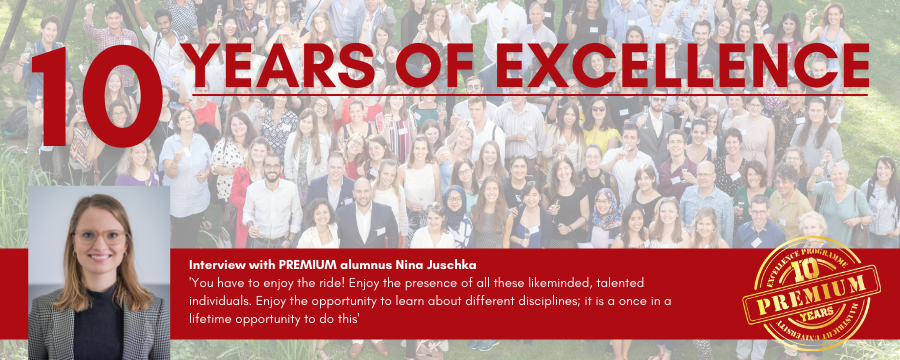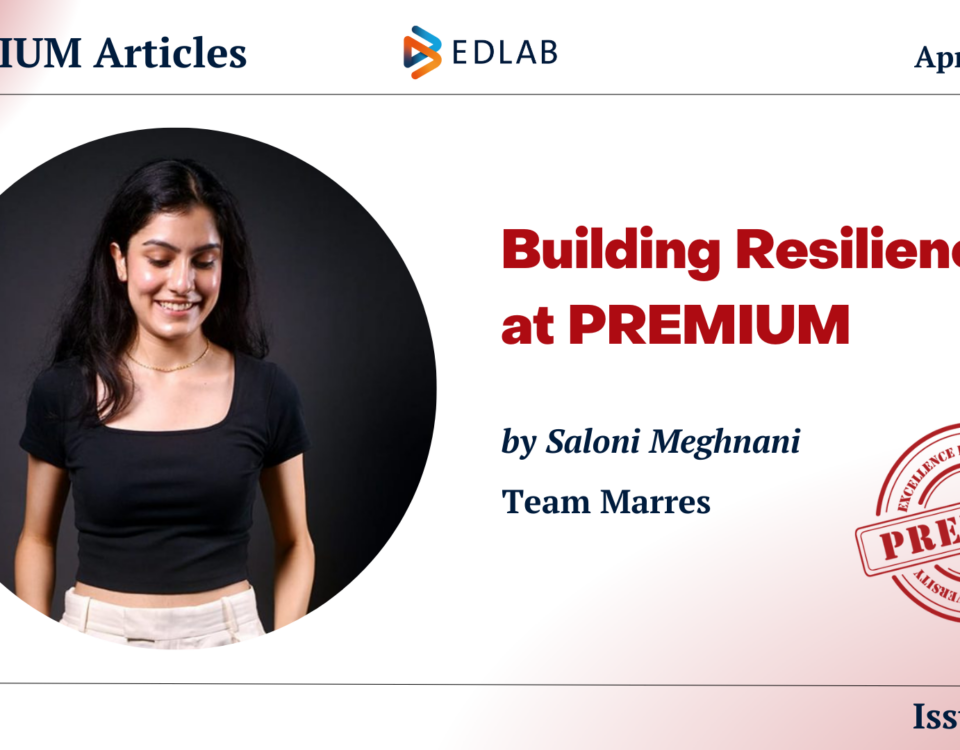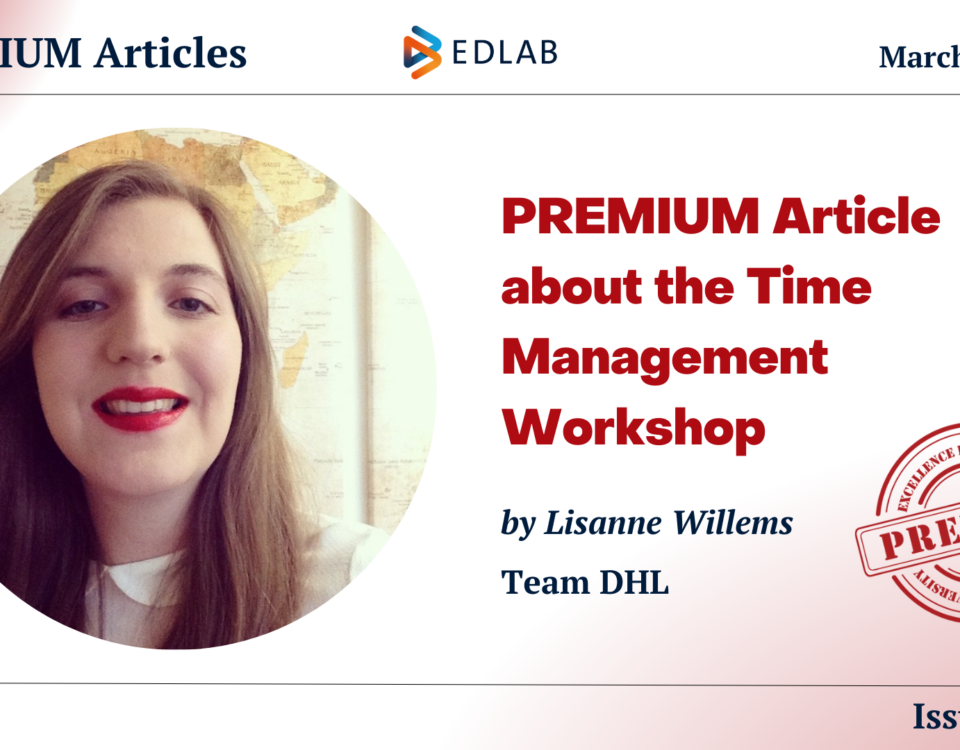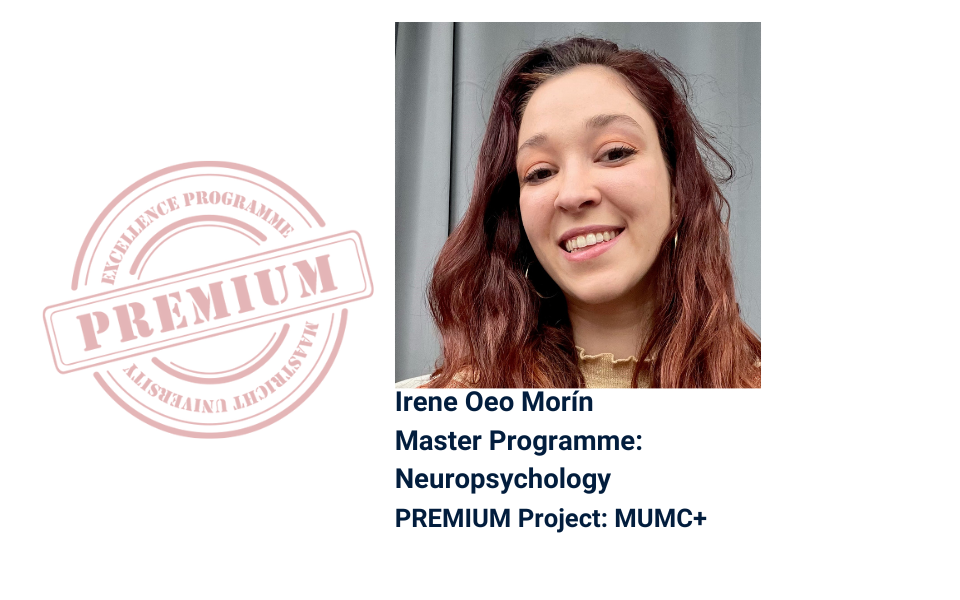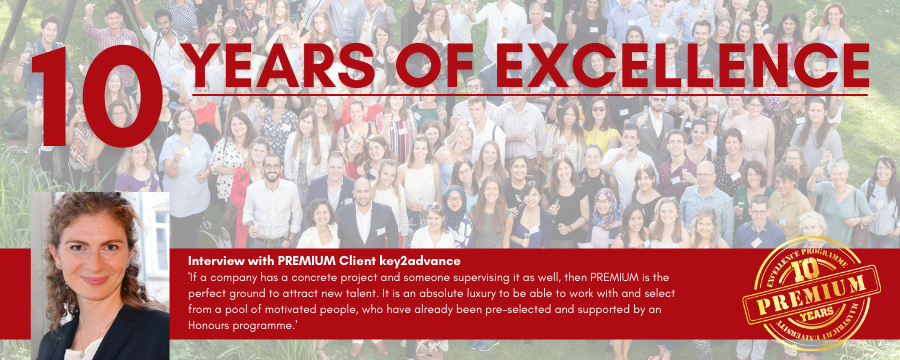
10 Years of PREMIUM – A decade of Excellence
30-04-2021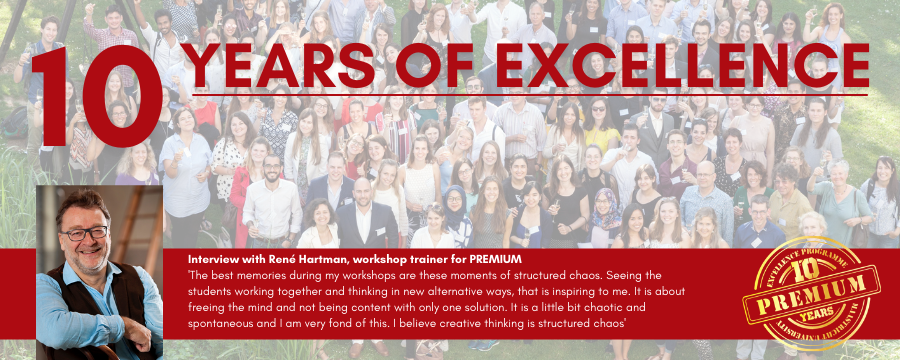
10 Years of PREMIUM – A decade of Excellence
11-05-2021In honor of 10 years of PREMIUM, we look back on what a decade of PREMIUM has meant for our alumni, coaches, mentors, clients and trainers.
Interview with Nina Juschka, PREMIUM alumnus academic year 2019-2020. Nina was a master student at SBE, Learning and Development in Organisations. During PREMIUM, Nina was part of the project team for the client Accenture. During this project time, the Covid-19 pandemic hit and therefore the entire programme had to suddenly switch to online in a short manner of time. We were curious to hear from Nina how she experienced the (partly online) programme and how she handled the job search during Covid-19.
Nina chose to study Learning and Development in Organisations in order to make a positive impact by focusing on the development and well-being of employees. Seems like Nina is pursuing her goals, as she is now working as a Quality Improvement Officer at Shop Apotheke Europe. ‘In short, the quality team implements, monitors, and ensures compliance of the company to existing guidelines and quality standards. Beyond this compliance, we emphasize the advancement of a quality improvement culture, in which all employees are inspired to comply with quality standards and continuously learn and adapt to improve processes and ultimately patient care.
In this change management context, my background in learning and development comes into play: workforce learning is an important prerequisite for continuous quality improvement. Right now, I am focusing on quality initiatives associated with this.’
Being a UM student, you probably could have chosen many different extracurricular programmes; Why did you choose PREMIUM?
‘During my Bachelor studies, I participated in Honours+ (the honours programme for Bachelor students of UM). Through this, I learned about PREMIUM as well and how they really value the development of students and want to challenge them next to their studies.
In PREMIUM I valued the multidisciplinary exchange, the integration of your own studies and getting field experience. It is perfect because you can apply the knowledge you gain in your master programme directly to a relevant real-life problem of a client. Also, the coaching trajectory pushes you to reflect on your own development and progression, both professional and personal. You really cannot compare this to other programmes, and I found it to be very manageable next to my studies.’
In what way did PREMIUM prepare you for the job market and your professional career?
‘For me, the most important aspect was the exchange with other students that are not like-minded. You are used to your own perspective and the perspective of your fellow students, but then someone with e.g. a law background – a completely different study background – approaches the same problem in a completely different manner. It is all about having this constructive conflict, sharing your knowledge, explaining your mental models to the others, and emphasizing common ideas. This is exactly what happens in your professional career and this experience taught us to manage advanced teamwork, sticking together for a long period and challenging each other. Also, I learned to be more resilient as you are not that quickly overwhelmed by a challenge anymore.’
What is the most important thing that you have learned from PREMIUM?
‘As a student you are continuously in the bubble of your own discipline. Your fellow students, tutors, and professors all generally share a certain set of assumptions and ideas. PREMIUM assigns you to an interdisciplinary group full of talented individuals, each one of them being from a different background. Here you quickly learn to question existing standards and update your own views. You have a certain set of innate assumptions, but someone else gives you another completely different picture, so you start questioning your own views and then you learn that there is more than one way to access a problem. You learn to deep dive into different disciplines, be open to various opinions and synthesize a common understanding to solve the given case together.
In my daily job, next to the theoretical knowledge of my master, these are the main skills I use on a daily basis.
Also, the workshops and the coaching helped in getting to know yourself better as a person. Being a student, you are always busy and do not take the time to reflect on yourself and your development. These elements force you to do so and to learn about your strengths and passions.’
In what way has the current pandemic influenced your job search/current career? Do you have tips and tricks to share?
‘Yes: take your time and do not hesitate to deviate from your original plan. All the time you read about how times are changing and are unpredictable, and this pandemic really is evidence that times are indeed unpredictable. My advice is to stop worrying about the future and to not let the pandemic rush you into something you might regret later. Go back to the present moment and consider your options. For me this meant bridging some time with an internship rather than saying yes to a job that did not fit my wishes. With some networking and patience, I was eventually able to find a job that was the right fit for me – so I am happy that I took my time, said no to job offers that did not feel right, and then made a confident decision. Also: Reach out to alumni! People are always happy to talk about their jobs and help you along, never think you are bothering them!’
What powerful advice would you give to the current generation of PREMIUM graduates?
‘Enjoy the ride! As students we always tend to focus on what comes next; which exam can I cross from my list, what extracurricular activity can I add to my CV and so on. All that thinking and worrying about the future gets you exhausted. Enjoy the presence of all these like-minded, talented individuals. Dive into long discussions, knowledge-sharing, and constructive conflicts. Enjoy the long developmental talks with your mentor. Take your time to pause and reflect on yourself. Enjoy the opportunity to learn about different disciplines; it is a once in a lifetime opportunity to do this.
PREMIUM sets a stage for lifelong learning: It is about so much more than just completing your clients’ project. Of course, you want to make your clients happy, but in the end, you are also there for the exchange, the self-development, sharing and gaining experiences and questioning assumptions. Enjoy the ride and make the most out of it.’

